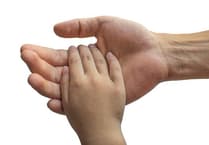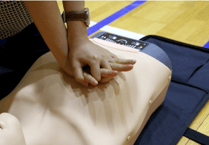More than 1,000 disabled veterans were living in the Forest of Dean in 2021, figures show.
This week is Armed Forces Week – a chance to show support for serving and retired military personnel.
Figures from the 2021 census of England and Wales provide rich detail of the living conditions of veterans across England and Wales.
Office for National Statistics data shows 1,143 veterans were classified as disabled under the Equalities Act in the Forest of Dean – defined as a physical or mental impairment that hinders their ability to carry out day-to-day activities.
This represents 30% of the 3,868 veterans living in the area when the census was carried out in March 2021.
Higher rates of disability may be explained by the older age profile of former servicepeople, given many will have been conscripted through national service, which ended in 1960.
In the Forest of Dean, 53% of veterans were aged 65 or older, compared to 25% among the wider population of the area.
Angela Kitching, a director at the Royal British Legion, said: “With more than half a million disabled veterans in England and Wales alone, it is crucial that people in the Armed Forces community who have served and sacrificed for their country receive help and support."
She continued: "The UK Government needs to ensure it prioritises funding for social care now and in the future and provides tailored care for veterans with illness or injury, so they can have the best possible quality of life."
The figures further show among all former military personnel 122 were suffering from deprivation in their housing conditions – defined by the ONS as an overcrowded or shared household, or one lacking central heating.
Ms Kitching added the Royal British Legion has recently seen "significant" demand for housing support, providing help to 1,700 veterans in the last year.
Across England and Wales, there were 567,000 disabled veterans as of 2021 – representing just under a third of all former servicepeople.
Meanwhile, just under 5% of the 67,000 people in prisons and detention centres had previously served in the armed forces.
A spokesperson for the Cabinet Office said: "We are committed to ensuring that our veterans are supported throughout every stage in their lives, whatever their individual needs.
"The latest ONS statistics show that on average a veteran is less likely to live in ONS-defined 'deprived' housing than their non-veteran counterparts."
More than 80,000 former servicepeople were suffering from deprivation according to the ONS, including nearly 25,000 living without central heating.
Analysis of the figures show more than 4% of veterans live in housing classed as 'deprived', compared to nearly 11% among the general population. However, this rises to 23% among veterans of Asian backgrounds.




